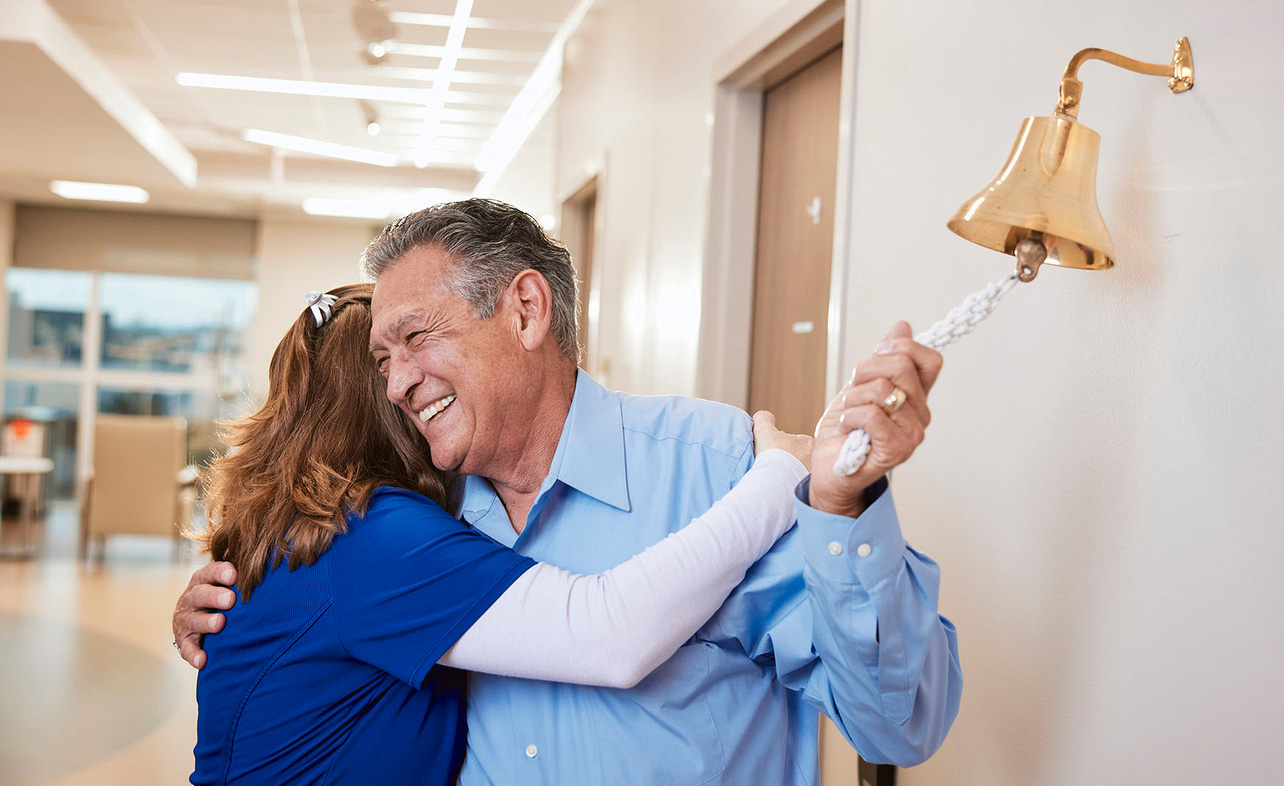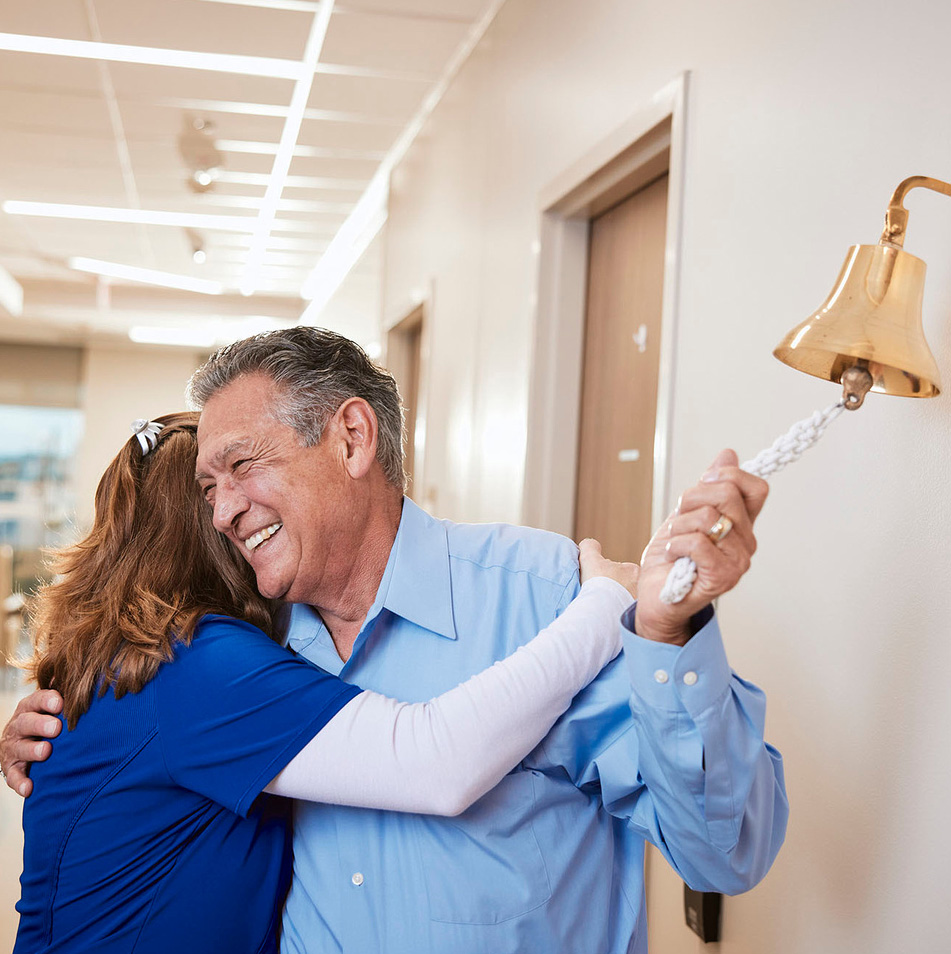

Social and Emotional Impacts of Cancer
- About Us
-
Cancer Care
-
Our Cancer Programs
- Adolescent and Young Adult Cancer Program
- Blood Cancer & Hematological Malignancy Program
- Blood Disorder (Hematology) Program
- Breast Cancer Program
- Cancer Risk Reduction and Education Clinic
- Cardio-Oncology Program
- Cancer Genetics Program
- Childhood Cancer Survivorship Program
- Endocrine Tumor Program
- Eye Cancer Program
- Gastrointestinal (GI) Cancer Program
- Genitourinary Cancer Program
- Gynecologic Oncology Program
- Head and Neck Cancer Program
- Liver Tumor and Cancer Program
- Lung Cancer Program
- Neuro-Oncology (Brain Tumor) Program
- Neurofibromatosis Program
- Pediatric Neuro-Oncology Program
- Pediatric Oncology Program
- Pediatric Sarcoma Program
- Pediatric Thrombosis Program
- Radiation Oncology
- Sarcoma Cancer Program
- Skin Cancer Program
- Supportive Cancer Care Program
-
Screening and Diagnosis
- Cervical Cancer Screening Guidelines
- Colorectal Cancer Screening
- Endometrial (Uterine) Cancer Screening Guidelines
- Hepatitis and Cancer
- HPV Vaccine and Screenings
- Liver Cancer Guidelines
- Lung Cancer Screening
- Mammogram
- Ovarian Cancer Screening Guidelines
- Prostate Cancer Screening Guidelines
- Skin Cancer Screenings
- Sun and Skin Safety
- Tobacco Use and Cancer
- Cancer Survivorship Program
- Cancer Treatments
- Conditions
-
Our Cancer Programs
- Clinical Trials and Research
- Donate and Volunteer
- Education
- Patients and Families
- Appointments
- Doctors and Locations
- Community Outreach and Engagement Program
At Mays Cancer Center, home to UT Health San Antonio MD Anderson Cancer, you receive support from providers who understand what you are going through. Our mental health professionals and team members deliver personalized care that helps you enjoy life and return to the activities you love.
Support for social and emotional impacts of cancer
At Mays Cancer Center, our team includes a psychologist, social worker certified in counseling, and your cancer healthcare providers. We help you and your loved ones overcome mental health and social concerns so you can live a better quality of life.
Common social and emotional issues we address include:
Body image
Body image refers to how you feel about the way you look. Cancer treatments can bring physical changes that can be difficult to accept. We help you regain confidence about your appearance increasing your self-esteem and helping you thrive.
Depression and anxiety
Depression and anxiety are common among cancer patients and survivors. Ongoing worries and dread can bring sadness, difficulty concentrating, sleep disturbances and physical symptoms, like rapid breathing and an upset stomach. These issues do not have to define your future. We can help you explore why you feel this way and learn healthy coping methods.
If you or someone you know need immediate mental health support, contact the Suicide Crisis Line by calling or texting 988. You can also connect via live chat.
Fear of recurrence
Survivors often worry about cancer recurrence. Being familiar with your body can help you know the difference between regular changes, for example, signs of aging and more concerning issues. If you aren’t sure, ask your doctor.
Loss and grief
These feelings are natural when living with cancer or recently completed treatment. Grief isn’t limited to losing a loved one. There may also be unpleasant feelings over changes to your health, sex drive, fertility and independence. We help you manage these issues while still finding joy in everyday life.
Changes to relationships at home and work
It may seem like loved ones and coworkers treat you differently after cancer. Or maybe you feel as if you can no longer relate to them. It’s also common to be reluctant about discussing your care experiences with people you once felt close to. We can help you manage shifts in your relationships and find support when you need it.
Cancer survivor support groups
In addition to speaking with our providers, you may benefit from participating in support groups. You learn from people who have gone through similar experiences and have a safe environment for discussing your feelings. Learn more about support groups available at MD Anderson Cancer Center.
Get cancer care
To begin care in our cancer survivorship program, contact your oncologist or health care team for a referral. Or call 210-450-1000.
Discover leading care
Our providers work in collaboration with renowned cancer experts, giving you access to advanced cancer care methods.
Meet our team
Our survivorship team, comprised of nurse practitioners, works with other cancer experts from different medical specialties to provide personalized treatment plans.

 Close
Close
